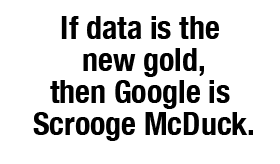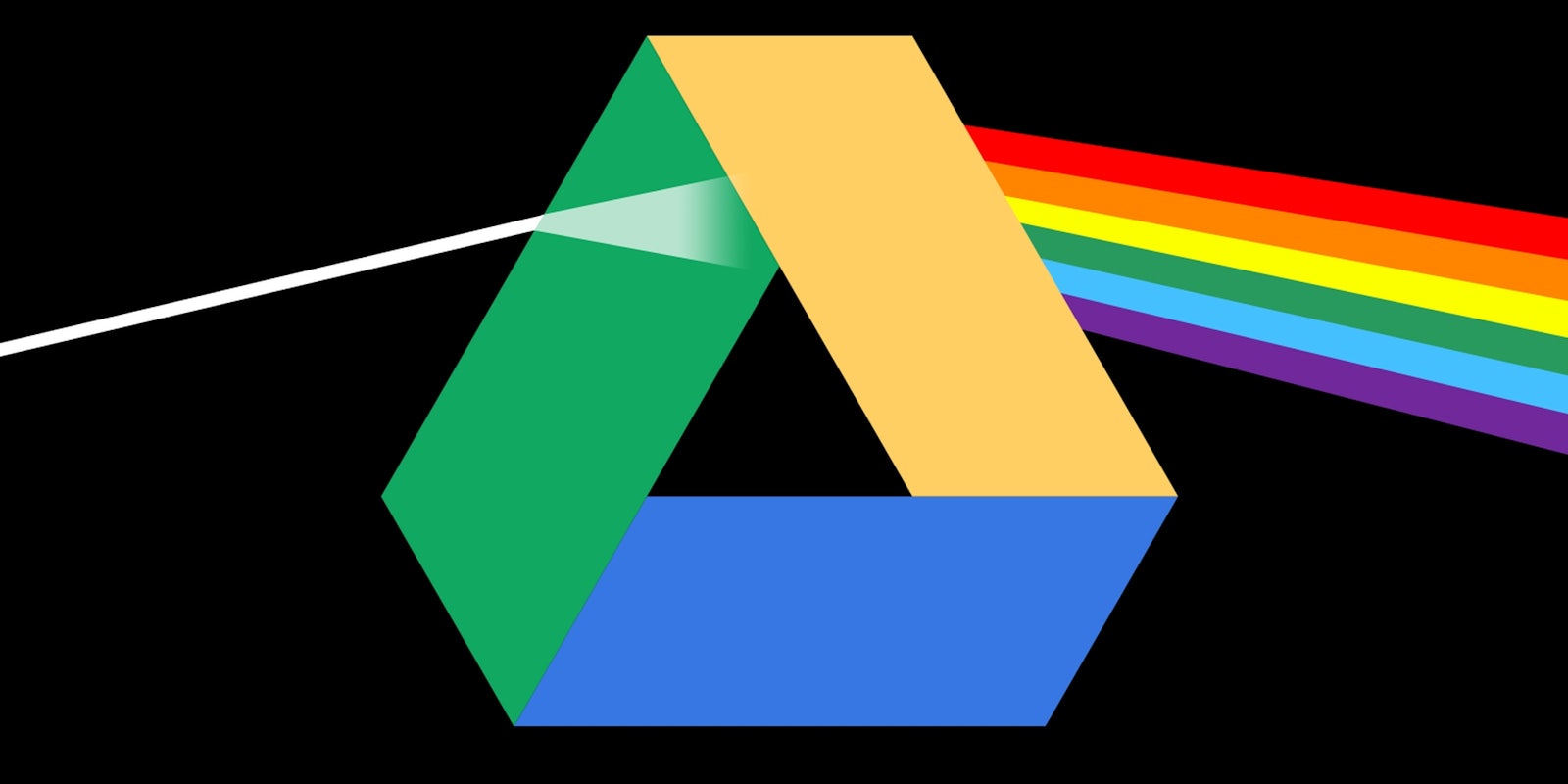If you use Google+ like it’s Facebook, it’s a bit like going to a very crowded club where everyone ignores each other. Most social media is built upon the idea of connections between people, but Google+ seems a vast database of everyone you know with no acknowledgement that you know them.
Appearance wise, it sure does look like Facebook: a scrolling grid of pictures and links. But there seems to be lacking a certain humanity that Facebook, Instagram, and Twitter have accomplished. Gone are the baby photos and vacations and birthdays. Most of my feed consists of Pinterest-ready cliches about love and Google+ itself begging me to add people to my Circles.
The fact that I even feel the need to explain Google+ to you is a direct reflection of its lack of popularity. Despite the fact that Google humblebragged that Google+ went from 190 million users in May to 300 million (compared to Facebook’s 1 billion) this past October, an independent report states the service may have as few as 10 million daily, active users. This means the vast majority of people on Google+ are not users of Google+..
As part of a massive redesign effort in 2011, Google+ was integrated into every Google service we formally treated as separate objects: Gmail, Maps, Picasa, and YouTube chief amongst them. The decision this past October to only allow Google+ users to comment on YouTube is likely the source for the site’s 58 percent jump in popularity. Indeed, anyone with a Google account (meaning Gmail and Android OS users) is automatically given a Google+ account.
 However, this still means most people are likely interacting with the social media service through indirect means. In other words, people aren’t actually hanging out in Google+. It’s just a delivery system. Indeed, the other popular items in my feed are people making YouTube comments.
However, this still means most people are likely interacting with the social media service through indirect means. In other words, people aren’t actually hanging out in Google+. It’s just a delivery system. Indeed, the other popular items in my feed are people making YouTube comments.
The switch in the comment system has been met with an Internet-wide backlash. A Change.org petition has over 200,000 signatures demanding Google revert back to the old format, which allowed users to comment anonymously. YouTube cofounder Jawed Karim interrupted an eight-year silence (his last update was the first video ever loaded onto YouTube) on the video site to politely ask “why the f**k do I need a google+ account to comment on a video?”
The decision is certainly a risky one. YouTube comments, while notoriously prone to racism, misogyny, and homophobia, are one of the few things that make YouTube a social site. YouTube is a behemoth of the Internet’s mainstream structure, and any change is going to have wide ramifications. Although Google has stated the change is to better curate comments to individual users, the site is simply too big and vast (and Google+ to small and isolated) for that to actually function. Heck, as Violet Blue noted on ZDNet, the change isn’t even making YouTube cleaner.
Perhaps most curious of all is why Google did this in the first place. While the most popular theory seems to be a need to inflate the numbers of Google+ users to compete with Facebook, that doesn’t really seem plausible. No possible advertiser or shareholder doubts that Google has a massive reach as the single most-visited website in the world. Google+ is a corpse knocking against Google’s hull. Why is the company so adamant to keep it around?
The answer may lie in the fate of another stab by the search giant to enter social media, Google Buzz. Buzz was a short-lived microblogging service unveiled in 2010 meant to tie together all the user’s social media, including Twitter and Facebook. When Buzz launched, Google was immediately met with a torrent of furious criticism over the decision to force regular Google users into the service without their knowledge, thereby making a swath of previously private information public (such as all contacts a Gmail account has ever interacted with). Criticism quickly turned into lawsuits from both the Electronic Frontier Foundation and the Electronic Privacy Information Center, as well as a handful of individuals. Despite attempts to fix the privacy settings, Google discontinued Buzz in 2011.
If Google learned anything from that fiasco, it’s the artfulness required to mash all their services together into a single, profile-oriented entity. Going back to the experience of using Google+, the information it presents about me is quite sparse. (It actually has to ask me for my birthday, but my answer is optional). And far from Facebook’s labyrinthine privacy settings, you can turn your Google+ profile into a private cell in just a few clicks of layman-termed options. This is a website that needs to know nearly nothing about me yet wants to learn everything.
If data is the new gold, then Google is Scrooge McDuck. It already has massive tracts of information about what you search, but (as any blog editor can tell you) searching is old hat, man. Social media is the new way to reach readers, shoppers, and everyone else. Google correctly recognizes it specializes in a technology that, while useful, is only half the equation in data-mining advertisers (or the National Security Agency) would find useful.
Google+ is an attempt to leverage every Google product you use into a shareable format. Everything from Maps to Picasa to YouTube must be a single action. Even Gchat has been lost to Google+ Hangouts. Google wants a unified network to not simply know what you’ve done but even what you might do. And, as sites like 4chan and Reddit have known for some time, it’s very hard to microtarget people for ads when you don’t even know who they are.
In fact, a larger question exists here: Is this the end of the Internet as we know it? The idea of forcing people to use real identities on the Internet has been kicked around and, through Facebook comment sections, has even gained some traction. While it is unlikely every site will be forced into deanonymization, the desire to do what Google has done may be greater than any need.
Illustration by Jason Reed


